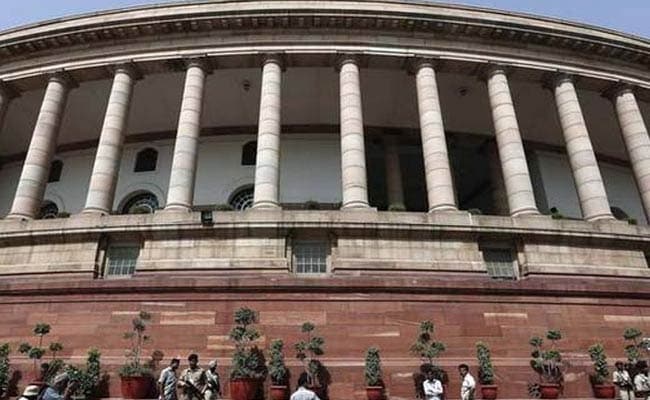
Raising the issue in Zero Hour, AAP leader Bhagwant Maan said there have been reports of police resorting to human rights violations in Punjab over the years through "fake" encounters.
New Delhi:
Several issues, including human rights violations in "fake" encounters in Punjab, an alleged paddy procurement scam in Bihar, the plight of onion growers in Maharashtra and the need for gender budgeting were raised in the Lok Sabha today.
Raising the issue in Zero Hour, AAP leader Bhagwant Maan said there have been reports of police resorting to human rights violations in Punjab over the years through "fake" encounters.
He made a strong plea for setting up of a National Judicial Commission to go into the issue and bring the culprits to book.
The issues were raised in the din with Congress members protesting from the Well, raising anti-government slogans vociferously.
BJP member Kirti Azad alleged a Rs 40,000 crore scam in paddy procurement in Bihar and demanded an inquiry into it to bring the guilty to book.
Ms Azad said the Comptroller and Auditor General has found "rampant corruption" in paddy procurement in the state over the past three years, claiming that the paddy meant for the public distribution system found its way in black market.
Meenakshi Lekhi, also of the BJP, underlined the need of gender budgeting to ensure effective implementation of laws against domestic violence to give a fair deal to women.
She lamented that there were hardly any shelter homes in any part of the country barring Karnataka envisaged under the Act against domestic violence.
Hemant Godse (Shiv Sena) made a strong plea to the government for reducing the minimum export price for onions saying there would soon be a glut in the market.
He said the MEP of 700 dollars per tonne was affecting the onion grower adversely as there is likely to be production of 80 lakh tonnes by March next year as against the domestic need of 40 lakh tonnes for the period.
Raising the issue in Zero Hour, AAP leader Bhagwant Maan said there have been reports of police resorting to human rights violations in Punjab over the years through "fake" encounters.
He made a strong plea for setting up of a National Judicial Commission to go into the issue and bring the culprits to book.
The issues were raised in the din with Congress members protesting from the Well, raising anti-government slogans vociferously.
BJP member Kirti Azad alleged a Rs 40,000 crore scam in paddy procurement in Bihar and demanded an inquiry into it to bring the guilty to book.
Ms Azad said the Comptroller and Auditor General has found "rampant corruption" in paddy procurement in the state over the past three years, claiming that the paddy meant for the public distribution system found its way in black market.
Meenakshi Lekhi, also of the BJP, underlined the need of gender budgeting to ensure effective implementation of laws against domestic violence to give a fair deal to women.
She lamented that there were hardly any shelter homes in any part of the country barring Karnataka envisaged under the Act against domestic violence.
Hemant Godse (Shiv Sena) made a strong plea to the government for reducing the minimum export price for onions saying there would soon be a glut in the market.
He said the MEP of 700 dollars per tonne was affecting the onion grower adversely as there is likely to be production of 80 lakh tonnes by March next year as against the domestic need of 40 lakh tonnes for the period.
Track Latest News Live on NDTV.com and get news updates from India and around the world

